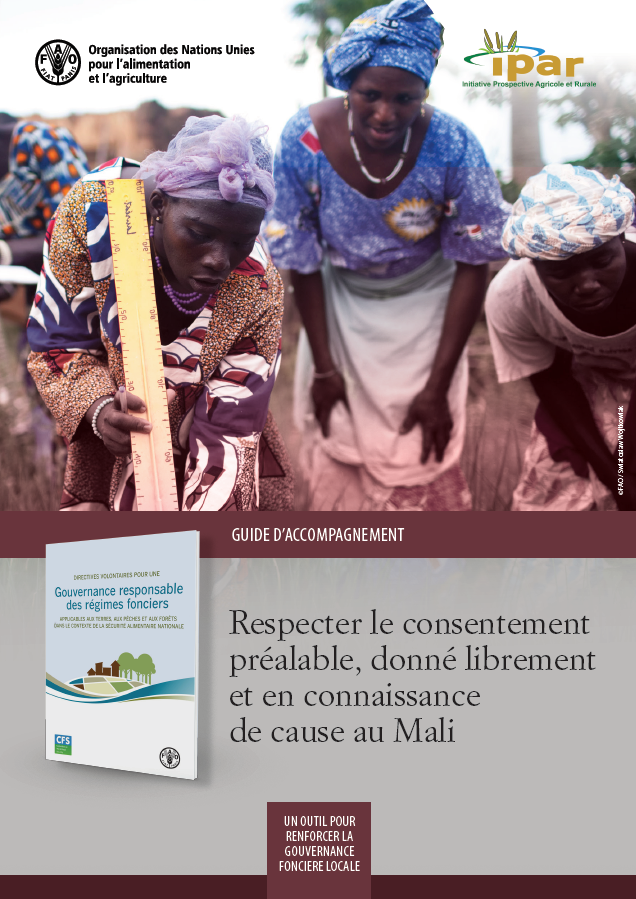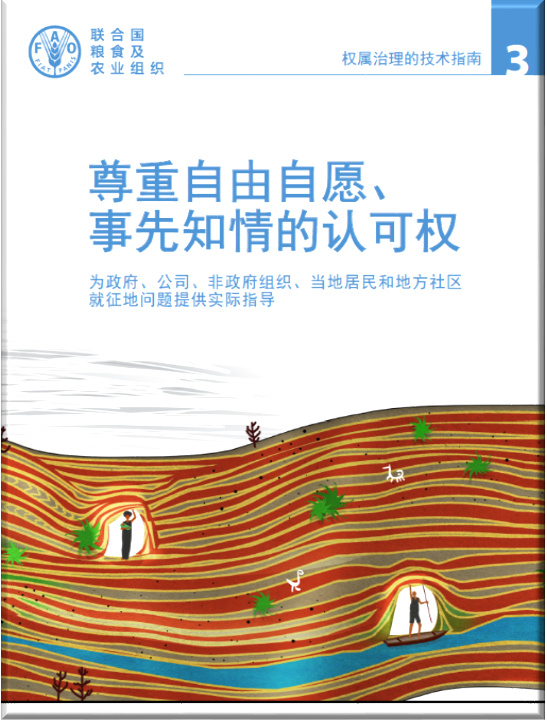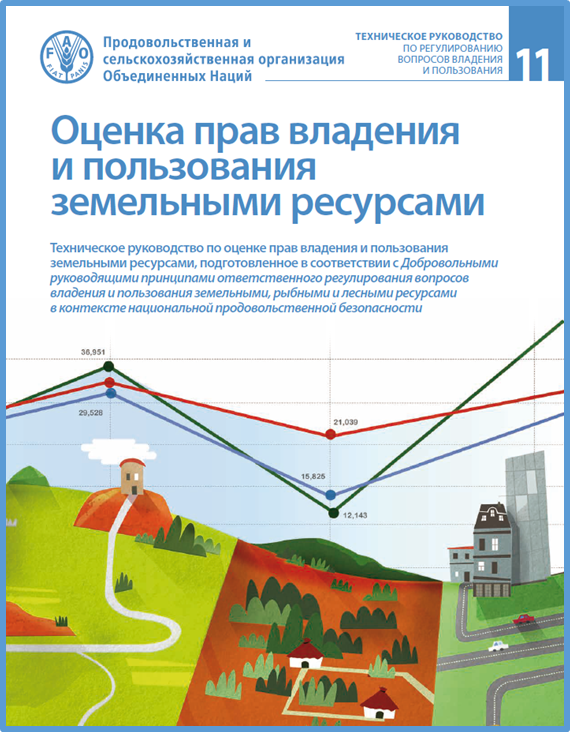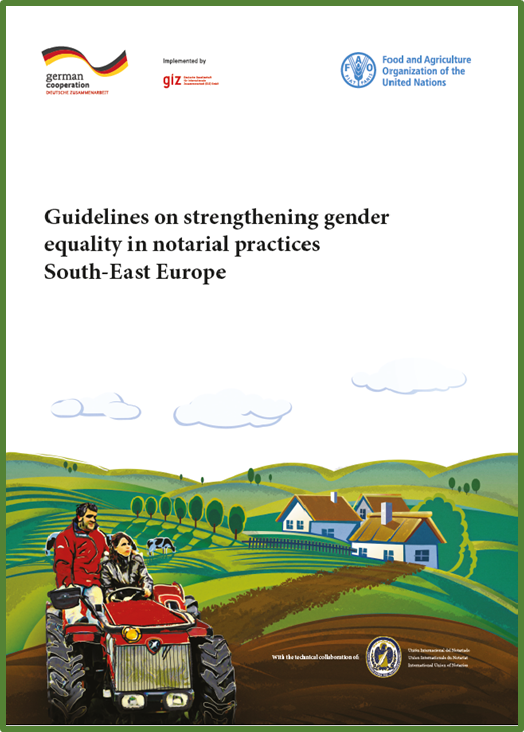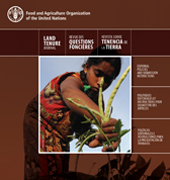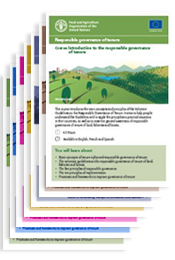Governance of tenure newsletter
The “Voluntary Guidelines on the Responsible Governance of Tenure of Land, Fisheries and Forests in the Context of National Food Security” are referred to as the “Voluntary Guidelines" or the VGGT in this newsletter.
- With support from Italy, FAO launches a project in Colombia that promotes a culture of legality, inclusion and coexistence
- Scaling up innovations to protect women’s customary land rights: practical experiences in Sierra Leone
- UN Integrated Geospatial Information Framework: Guyana experience
- Viet Nam – Mainstreaming the VGGT in the revision process of the 2013 Land Law
- Mongolia moves forward on protecting its rangelands
- FIG Working Week 2019 - Hanoi, Viet nam, 22-26 April 2019
- Capacity Development - developing capacity to increase governance of tenure
- New publications
- Land Tenure Journal - call for submissions!
- E-learnings
With support from Italy, FAO launches a project in Colombia that promotes a culture of legality, inclusion and coexistence
 |
|---|
| © FAO Colombia |
As part of the support strategy of the Government of Italy with Colombia, the Food and Agriculture Organization of the United Nations (FAO), in partnership with the Agencia Nacional de Tierras (ANT) and Parques Nacionales Naturales de Colombia (PNN), launched a project that seeks to contribute to greater clarity regarding land tenure rights, and to promote coexistence and social inclusion in rural areas where conflicts associated with land tenure have generated ruptures in the social fabric.
One of the main challenges identified by the project Legalidad, inclusión y convivencia en nuestra tierra hacia una tenencia responsable de la tierra, y la resolución de sus conflictos is to promote a culture based on legality, since informality in land ownership prevents rural citizens from overcoming poverty, prevents their access to public goods and services, and increases conflicts between institutions, the private sector and peasant and ethnic communities.
The project aims to strengthen the capacities of stakeholders, to improve land formalization processes more rapidly; and to use locally innovative methods that contribute to greater coexistence. The sharing of lessons learned and good practices from countries in the region and from around the world will help to facilitate the incorporation of the Voluntary Guidelines on the Responsible Governance of land, Fisheries and Forests in the context of national food security (VGGT) in favor of sustainable rural development in the country.
The launch was held on March 19, 2019 in Bogota, Colombia.
Click here for more information about the event (in Spanish).
Scaling up innovations to protect women’s customary land rights: practical experiences in Sierra Leone
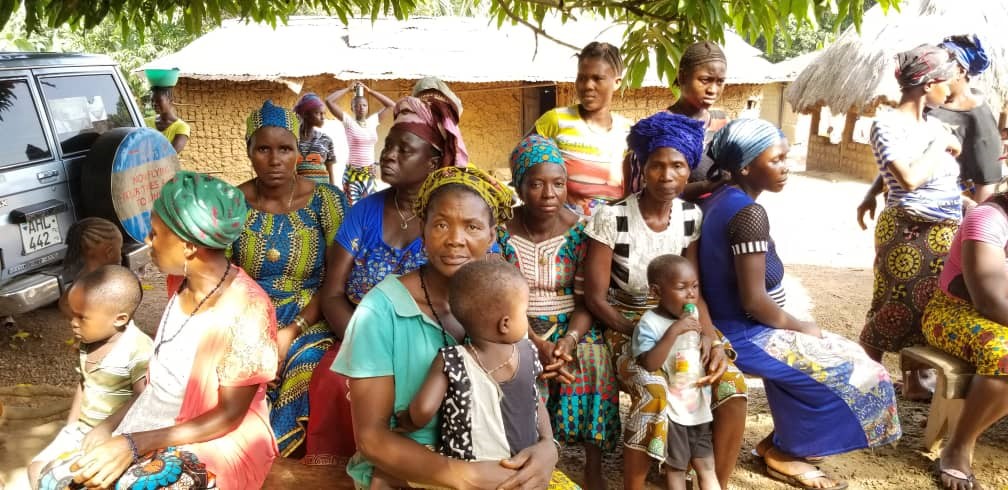 |
|---|
| © FAO Sierra Leone |
Important changes are happening in the governance of tenure in Sierra Leone. The implementation process of the Voluntary Guidelines on the Responsible Governance of Tenure of Land, Fisheries and Forests in the context of national food security (VGGT) has brought together key stakeholders to foster and promote these changes.
Within the framework of implementing the VGGT, the Food and Agriculture Organization of the United Nations (FAO) developed the Open Tenure and Solutions for Open Land Administration (SOLA) as fit-for-purpose geospatial tools for the recording and mapping of land rights.
In the case of Sierra Leone, SOLA was customized for mapping customary land rights as a key component of a program to ensure that rural women in the provinces are better able to negotiate their rights of access, use and ownership of land. The overall objective of the project was to strengthen the capacity of rural women to understand their land rights and to self-advocate for the protection of their customary land rights and the elimination of discriminatory barriers through improved reforms in land rights administration.
Click here for more information on VGGT implementation and success stories in Sierra Leone
Addressing the Voluntary Guidelines in policies and laws
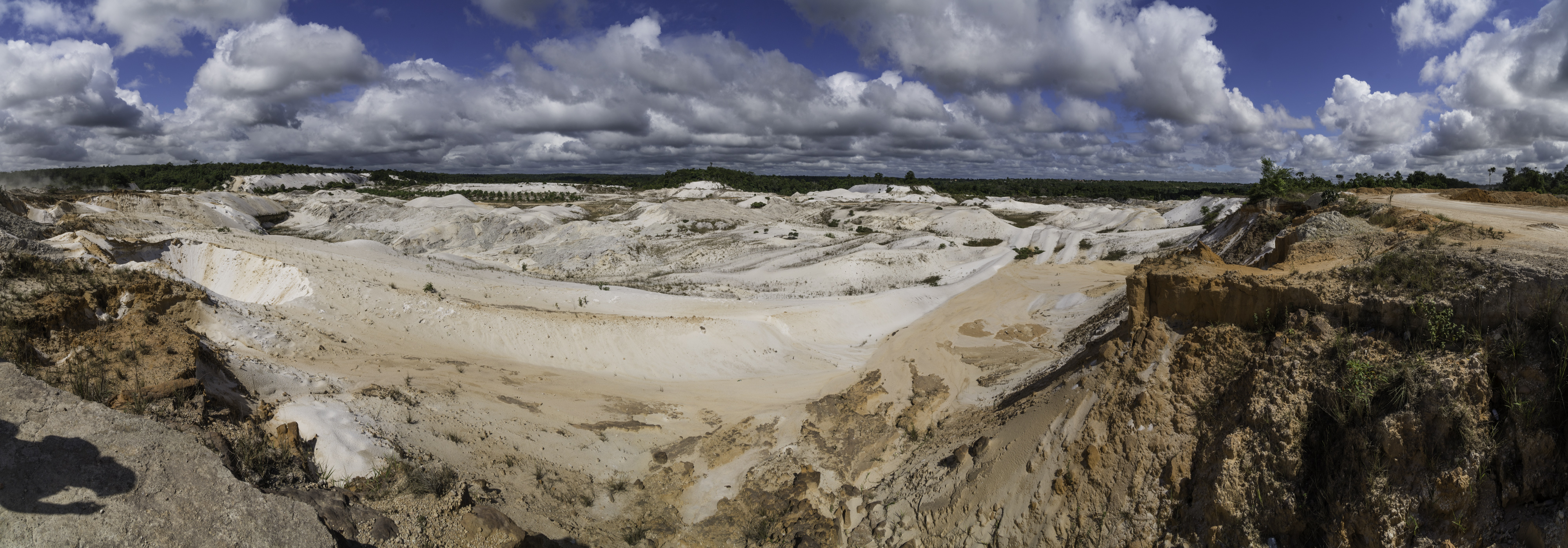 |
|---|
| © Hanspeter Liniger |
UN Integrated Geospatial Information Framework: Guyana experience
In August 2018, the UN Committee of Experts on Global Geospatial Information Management endorsed an Integrated Geospatial Information Framework (IGIF), which is anchored by nine strategic pathways within three main areas of influence: governance, technology and people. The Framework aims to assist countries to move towards e-economies, improve services to citizens, build capacity for using geospatial technology, enhance informed government decision-making processes and to bridge the geospatial digital divide in the implementation of national strategic priorities and the 2030 Agenda for Sustainable Development.
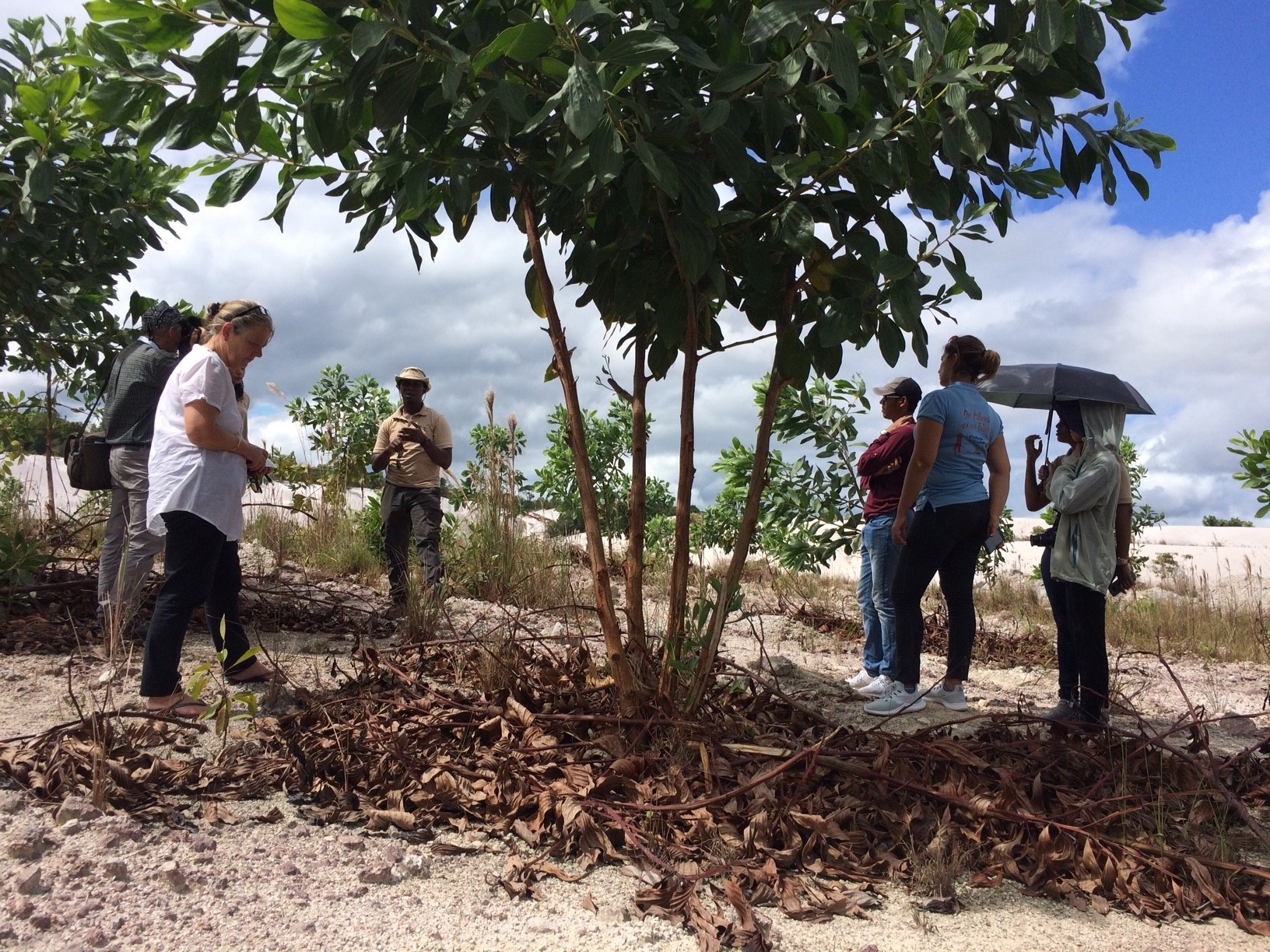 |
|---|
| © FAO Guyana/Sally Bunning Berbice |
The Cooperative Republic of Guyana is one of the first countries in the world that is taking action to align its national policy and business drivers on geospatial information management to the IGIF. This work is part of a four year project “Mainstreaming Sustainable Land Development and Management”, which started in April 2018 with the objective to promote sustainable land use and the reclamation of degraded lands, which is essential to Guyana’s Green State Development Strategy, the national development plan that will guide the country’s green economic and socio-cultural development over the next 15 years. The work is funded by the Guyana REDD+ Investment Fund. The Guyana Action plan was presented in March 2019 at the World Bank Land and Poverty Conference and in April 2019 at the FIG working week in Hanoi, as an example to other countries and regions.
For more information:
UN Integrated Geospatial Information Framework
Article in the Guyana Standard
World Bank Conference on Land and Poverty session: Implementing NSDI
Viet Nam - Mainstreaming the VGGT in the revision process of the 2013 Land Law
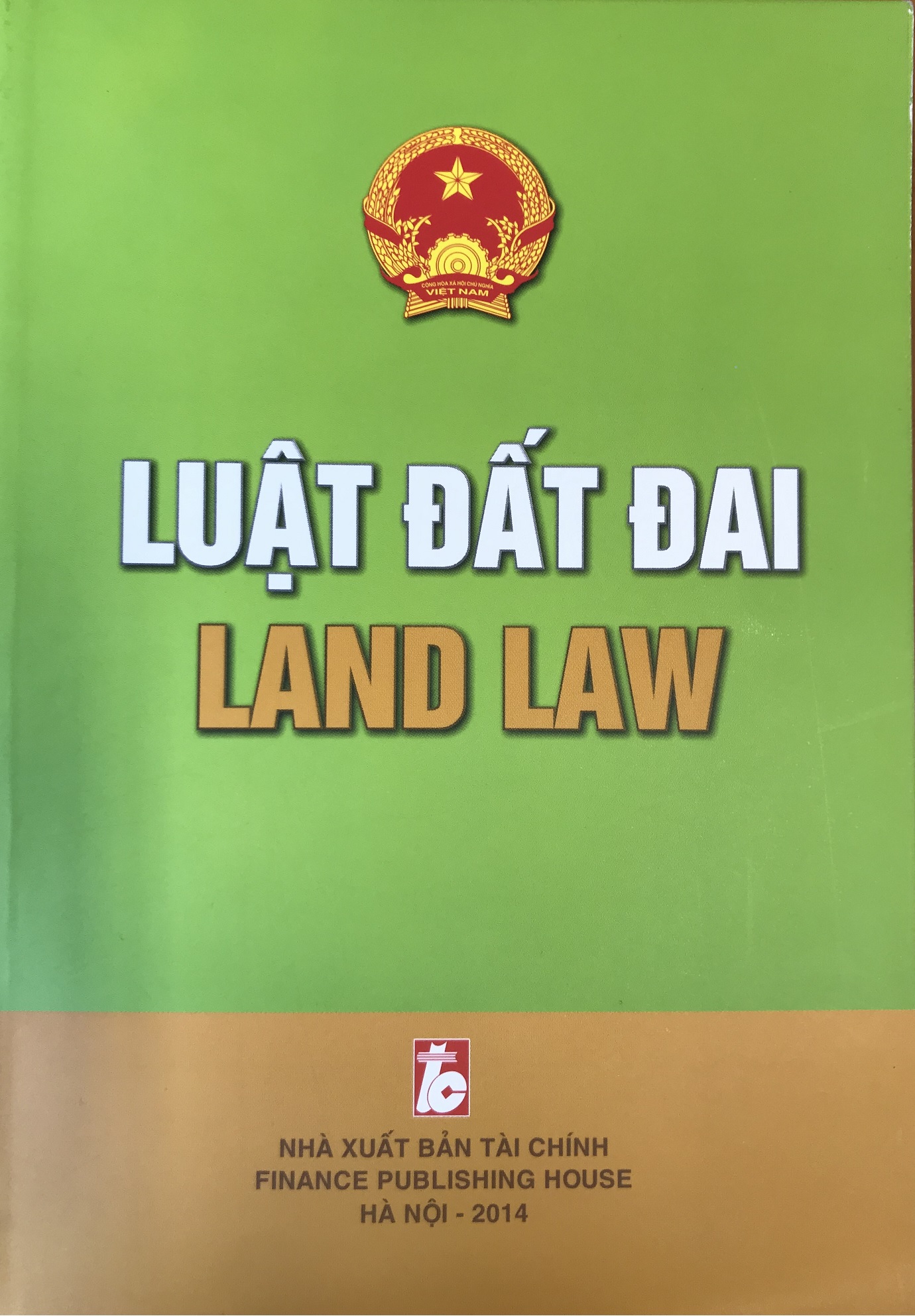 |
|---|
FAO and the Information Centre for Agriculture and Rural Development (AGROINFO) of the Institute of Policy and Strategy for Agriculture and Rural Development (IPSARD), in Viet Nam, have agreed on mainstreaming the VGGT principles in the revision process of the Land Law 2013 for more responsible land tenure governance.
The work has begun with an analysis of the compliance of the 2013 Land Law with the VGGT, for agricultural land accumulation and acquisition.
This will be followed by undertaking several case studies, including field surveys, to look at the land accumulation and acquisition situation on the ground. Furthermore, a number of workshops will be organized with the various stakeholders in those provinces. Lastly, two regional workshops (in Hanoi and Ho Chi Minh City) to raise awareness on the VGGT and tenure governance and consultation workshops to discuss and validate the developed set of recommendations are envisaged.
The work will be carried out throughout 2019, in collaboration with the General Department of Land Administration of the Ministry of Natural Resources and Environment, and the departments of the Ministry of Agriculture and Rural Development. FAO’s Legal Office and Land Tenure Unit will work closely with AGROINFO/IPSARD and partners.
The Swiss Agency for Development and Cooperation is supporting the work.
Mongolia moves forward on protecting its rangelands
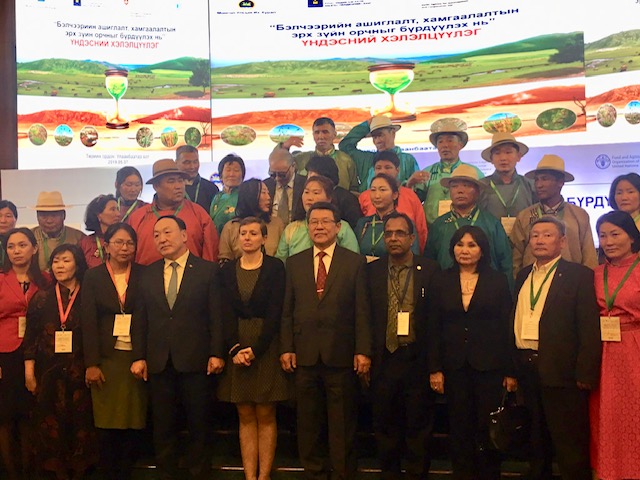 |
|---|
| © FAO Mongolia |
A milestone in Mongolia’s role as leader in promoting rangeland and livestock sustainability, over 850 participants came together in the parliament house on 7 May 2019 to discuss how to improve the regulatory environment for rangeland use and protection. Results gathered from the event will be used to finalize draft recommendations that were presented in plenary and endorsed by a vast majority. The law submission to the parliament is a crucial step towards preserving Mongolian rangeland for the benefit of current and future generations.
FIG Working Week 2019 - Hanoi, Viet nam, 22-26 April 2019
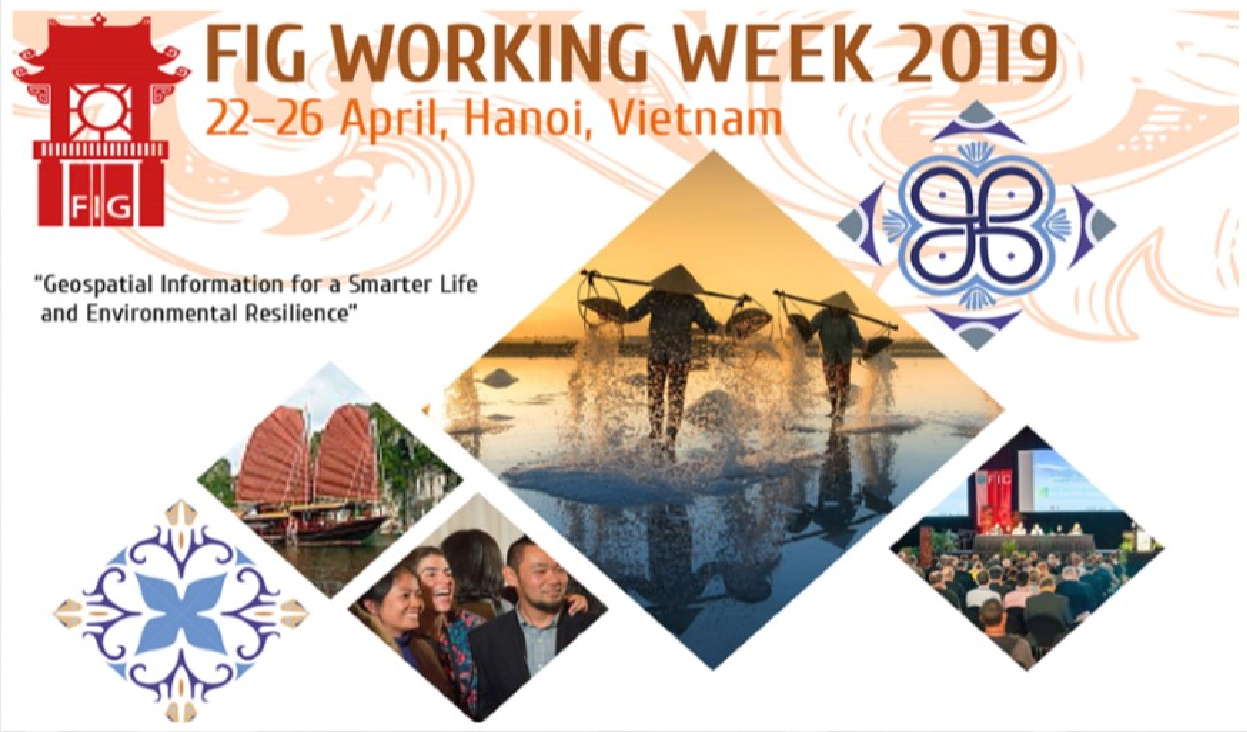 |
|---|
The theme of this year’s FIG conference, jointly organized by the International Federation of Surveyors (FIG) and the Viet nam Association of Geodesy, Cartography and Remote Sensing (VGCR), was “Geospatial information for a smarter life and environmental resilience” with the Voluntary Guidelines and improved governance of tenure as one of the main thematic tracks. The FAO delegation contributed to the working week with three joint FIG/FAO sessions, with an emphasis on progress in supporting the application of the VGGT.
Presentations were delivered on Tenure and Resilience, on bridging the gap via VGGT materials developed to strengthen the role of surveyors, the use of geospatial information to improve tenure governance, protecting customary land rights in Sierra Leone and Open Tenure Spatial Mapping Technology, as well as a learning session on the use of Open Tenure technology and a prelaunch of a new technical guide on spatial planning.
Prelaunch of new Technical Guide
FAO and FIG Commission 8 on “Spatial Planning and Development” organized a joint session on “Strengthening civic spaces in spatial planning processes: a Technical Guide on regulated spatial planning and tenure to balance societal priorities in the use of land, fisheries and forestry" during the FIG Working Week, in Hanoi, on 24 April 2019. The session was a prelaunch of the forthcoming Technical Guide presenting the innovative approach, emphasizing four interlinked elements of strengthening civic spaces, i.e. enhanced access to information, meaningful participation, accountability and access to justice. This approach was illustrated by one of the cases in the Guide, a detailed example of how stakeholders participate in the complex process of land consolidation in the Netherlands.
The presentations were followed by a discussion with session participants from Canada, Lao PDR, Myanmar, Viet Nam, and participants working in China. Issues discussed included the importance of an inclusive process, how to keep rural areas attractive for younger generations, and what to do with land-use rights when people leave the area but do not want to use their tenure rights. Especially, the problems faced in many countries on how to improve the agrarian structure when legitimate tenure rights are not fully documented, or not up-to-date, triggered a lively discussion.
The Technical Guide will be published, with the support of the Federal Government of Germany, in the second half of 2019.
Mekong – Participation of Cambodia and Myanmar in the FIG Working Week
FAO supported the participation of government officials from Cambodia and Myanmar in the FIG Working Week in the context of South-South exchanges of lessons learned. The group represented the General Department of Cadastre and Geography of the Ministry of Land Management Urban Planning and Construction, the Department of Geospatial Information Service of the Ministry of Environment, and the Department of Agricultural Land Resource Management of the Ministry of Agriculture and Forestry (MAFF) in Cambodia, and the Forest Department of the Ministry of Natural Resources and Environmental Conservation in Myanmar. The Office of the International Organization Affairs of the Department of International Cooperation of MAFF in Cambodia also joined the event.
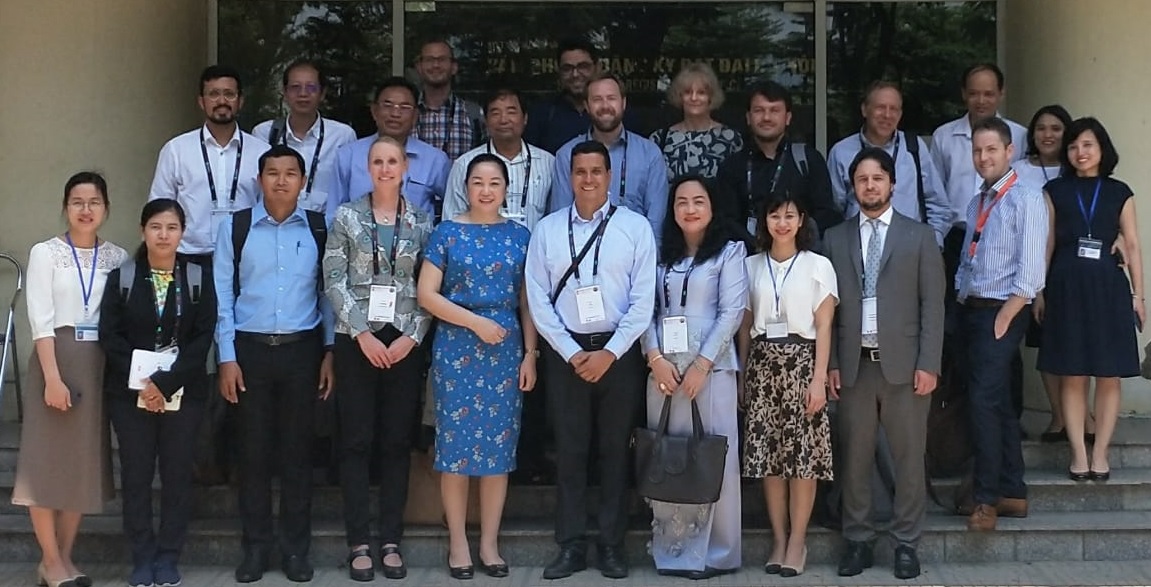 |
|---|
| ©GDLA, Hanoi |
The group participated in various sessions, in particular the visits to the General Department of Land Administration (GDLA) of the Ministry of Natural Resources and Environment, and the Hanoi Land Registration Office. These visits were together with the Chairs and members of FIG Commission 7 on “Cadastre and Land Administration” and Commission 8 on “Spatial Planning and Development”. Mr. Daniel Paez, Chair of Commission 7, referred to Asia as driving many of the innovative efforts in land administration.
Viet Nam has advanced well in setting up their land administration system but faces challenges to harmonize data and create a unified system. The modernization of the land administration system is being supported by a World Bank project to which FAO is providing technical assistance. Cambodia and Myanmar are further improving their systems and are interested in learning from the experiences in Viet Nam.
The visits provided the group with many ideas to further discuss with colleagues in the respective departments, as well as further ideas for continuing the mainstreaming of the VGGT in their respective countries and in the Mekong.
The Swiss Agency for Development and Cooperation provided the financial support.
Developing capacity to improve the governance of tenure
Increased capacity is essential to improving governance of tenure and to use the Voluntary Guidelines effectively. Increased capacity can be required for different areas and for different people, including representatives from government, civil society organizations (CSOs), indigenous peoples, the private sector and academia. A range of capacity development tools are available to assist groups and individuals in different settings to make the VGGT available and comprehensible to different audiences.
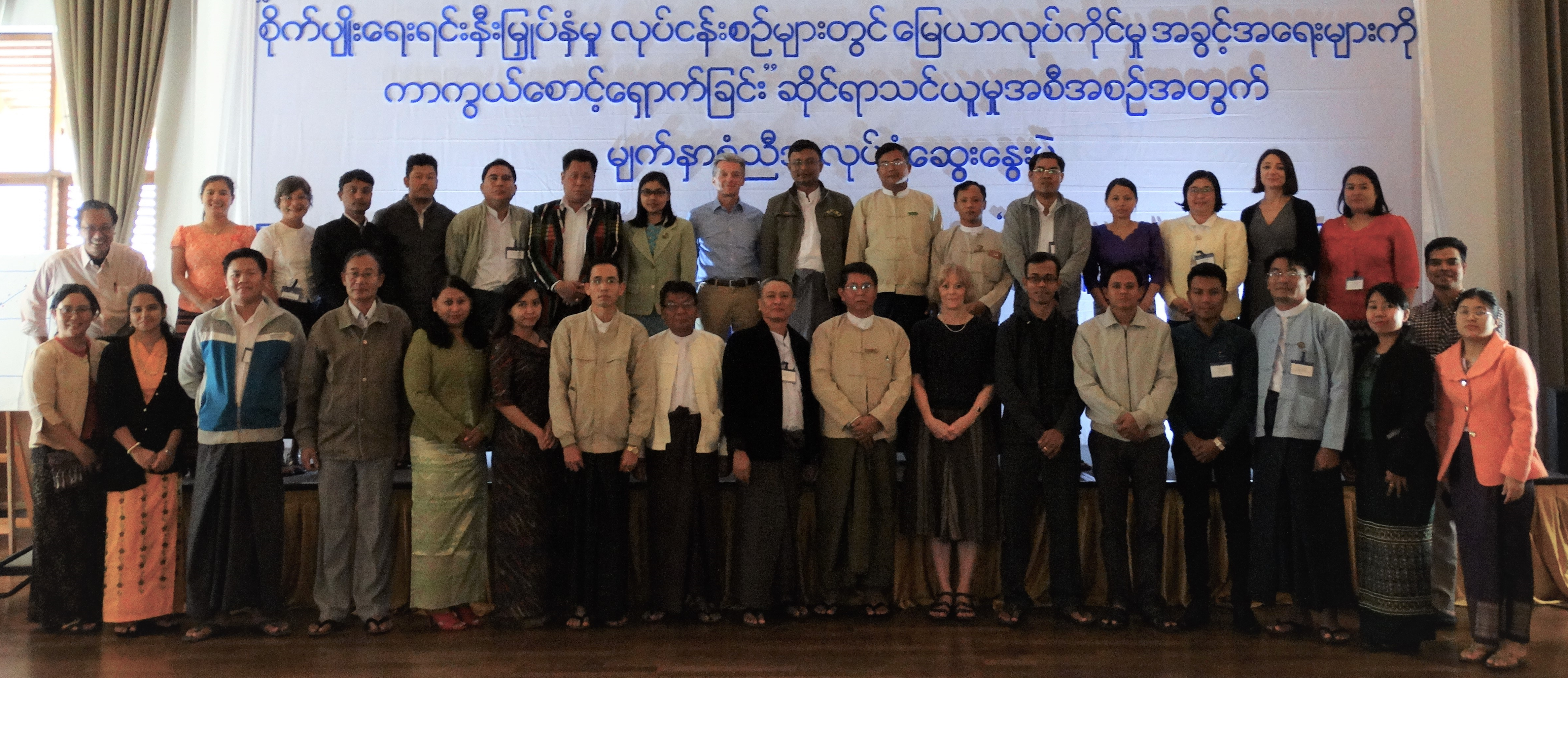 |
|---|
| © FAO Myanmar/ Su Myat Noe |
Myanmar – Rollout of the Learning Programme
The Food Security Working Group supported the rollout of the Learning Programme “Safeguarding land tenure rights in the context of agricultural investments" to enhance capacities of government authorities by providing guidance on actions they can take to create an enabling environment for responsible and sustainable investments in agriculture while safeguarding legitimate tenure rights.
25 participants, of which 40% were women, from different departments and government institutions involved in land administration, and investment screening, approval and monitoring processes, attended the workshop in Nay Pyi Taw from 20 to 24 January 2019. The Deputy Director General of the Department of Agricultural Land Management and Statistics of the Ministry of Agriculture, Livestock and Irrigation opened and closed the workshop and emphasized the importance of administration of tenure to safeguard rights.
Participants practiced with responsible investment principles, identified stakeholders, analyzed business models, and learned about Free, Prior and Informed Consent (FPIC), impact assessment, and monitoring. Private sector and civil society contributed to the workshop. Myanmar Belle Group and Zawgyi Premier Co. Ltd. discussed their business models for production of export crops (palm sugar) and local job creation. LANDESA and U Myint Thwin Law Firm discussed the space for consultation processes and FPIC within the existing legal framework; and Earth Rights International and ALARM discussed their experiences with impact assessment and monitoring.
Participants defined individual and country action plans in the subsequent online mentoring phase with which the Learning Programme concluded in early March 2019.
FAO received various requests for follow-up activities related to the legal framework and land administration.
Niger, February 2019: Bolstering the land policy process on women's access to land
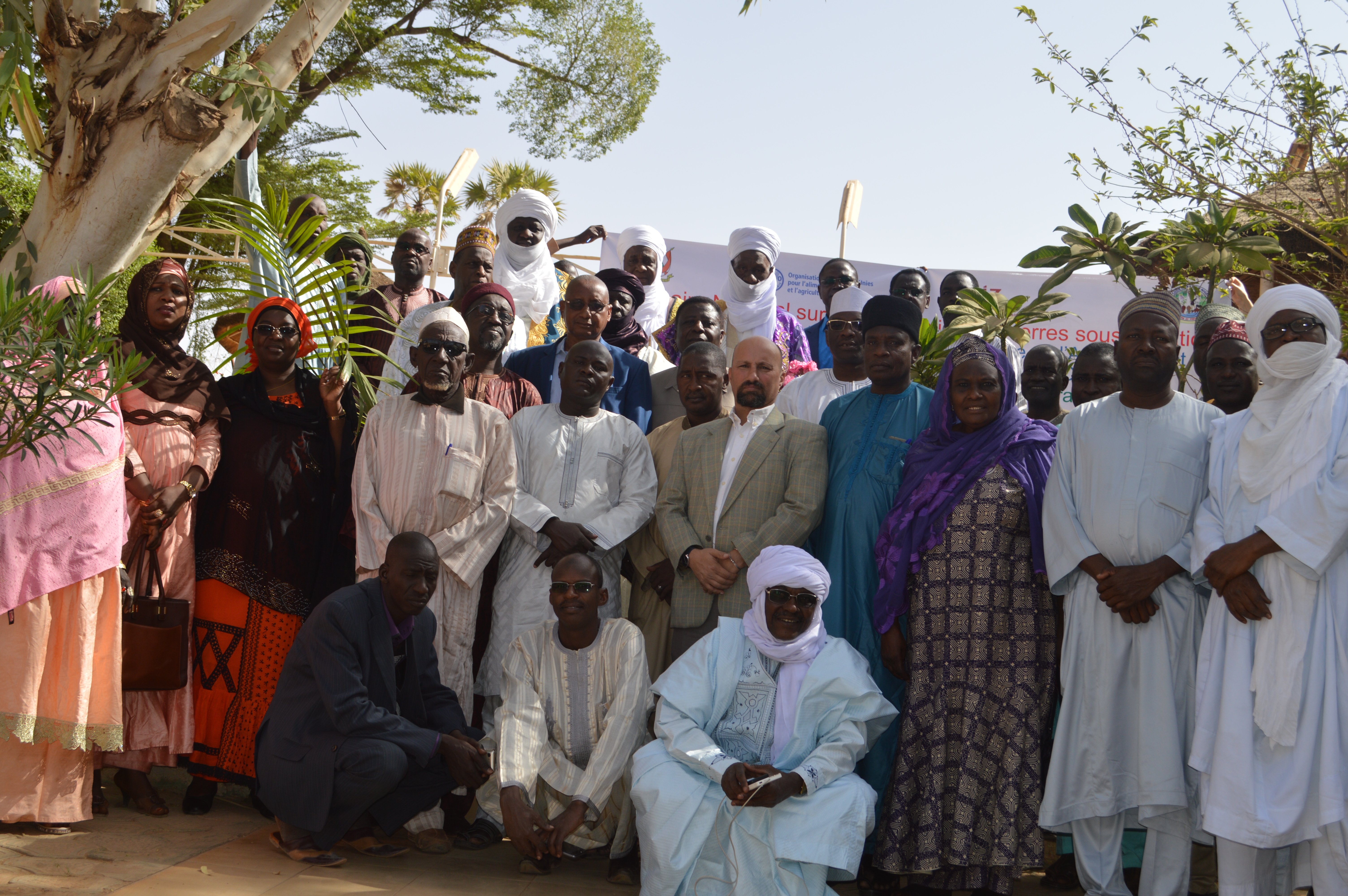 |
|---|
| © FAO Niger |
- Location: Niamey
- Number of participants: 80
- Participants: government, civil society organizations, academia, religious leaders, female lawyers
- Co-organizers and/or partner: the Code Rural and the Technical Committee in charge of elaborating the national land policy in Niger.
- Objective of the workshop: to bolster the process of elaborating the land policy of Niger through an exchange and reflections on how to secure women’s access to land.
- Outcome of workshop: the workshop led to the adoption of a set of proposals to secure measures for women’s access to land which will be considered in the national land policy. The workshop also allowed the participation of key actors, such as representatives of the association of women lawyers and religious leaders (marabouts), who were identified as new partners for VGGT implementation and “change agents” to trigger a greater impact on the ground.
Lecturing on international experiences in using the VGGT at JICA in Tokyo
FAO and the Japan International Cooperation Agency (JICA) have a joint programme in which the FAO Land Tenure Unit is contributing to the objective “Supporting sustainable agriculture, forestry and fisheries” through promoting tenure security by encouraging understanding of global tenure-related issues.
 |
|---|
| © JICA |
As part of the JICA Knowledge Co-Creation Programme “Inclusive land administration and improved tenure security”, FAO provided three days of lectures, exercises and role play at the JICA International Center in Tokyo on international experiences in working with the VGGT.
The lectures dealt with tenure governance, tenure security, safeguarding tenure and responsible investments, and the VGGT and the SDGs. The lectures were provided from 30 January to 1 February 2019 to a group of international participants that each developed a work plan to improve land administration and tenure security in their respective country. JICA staff and consultants also attended the lectures and participated actively in the exercises.
JICA and FAO continue to discuss possible collaboration within their respective work streams related to safeguarding tenure and responsible investments particularly in Myanmar and Viet Nam.
Using the VGGT to discuss solutions to urgent tenure challenges in Tunisia
The acceleration of urban encroachment of agricultural land, pollution, speculation and land fragmentation in Tunisia, contributes to the alarming situation where around 70 ha are lost in the oases annually. This worrisome development does not only affect the oases but also the surrounding pastoral areas, with which they closely interact in associated ecosystems.
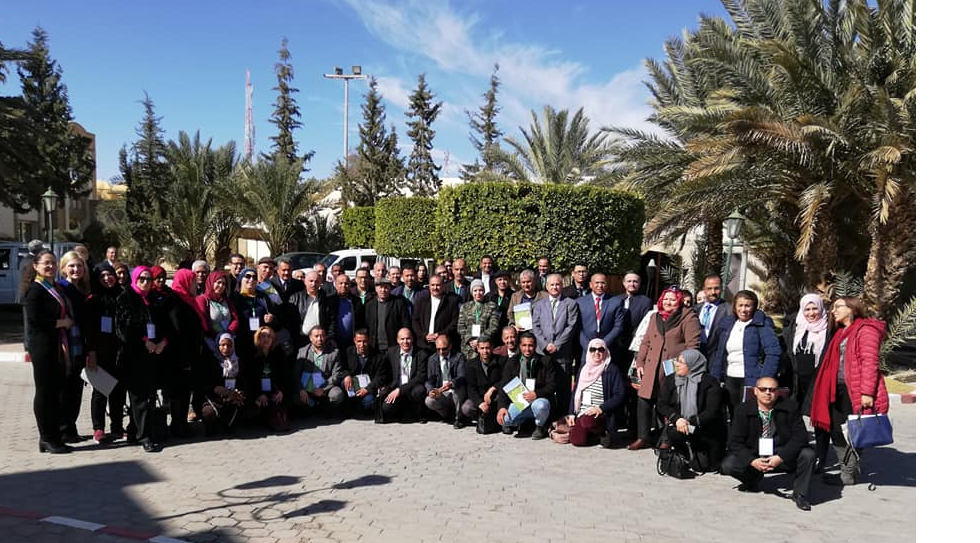 |
|---|
| © FAO Tunisia |
The threat to the historical oases and associated challenges was at the heart of the discussion during the third regional workshop organized by FAO and the Agricultural Land Agency (AFA) in Tozeur, Tunisia, from 31 January to 1 February 2019. The participants discussed how the principles and recommendations of the VGGT could help to address the urgent need for more responsible governance of tenure in Tunisia.
To improve the situation at local level, the participants underlined the importance of closely involving communities in spatial planning operations, and ensuring an integrated holistic approach with respect and protection of all legitimate tenure rights.
The multi-stakeholder workshop, which gathered AFA staff members and a broad range of stakeholders, was a new opportunity for a ‘multi-actor model’ as the inclusive framework to discuss solutions to these urgent local tenure challenges.It was the last in a series of three regional workshops with the objective to improve the management practices and approaches of AFA Staff.
Latin America and the Caribbean - La Semana de la Agricultura y la Alimentación
There are several elements that can explain the stagnation of the rate of reduction of rural poverty, among them, access to natural resources and land and water for family farming, takes on a fundamental importance. This was analyzed and discussed during La Semana de la Agricultura y la Alimentación: Desafíos futuros para América Latina y el Caribe.The regional forum is an opportunity for the exchange of experiences, dialogue, learning and the creation of agreements between different actors to advance towards the achievement of the Sustainable Development Goals in the agri-food sector and the rural world.
The meeting aimed to analyze the challenges of access to and governance of natural resources for sustainable rural development, to share experiences, lessons learned and recommendations regarding the governance of land resources. The presentations generated high level exchanges around the possibilities of replicating the experiences in other territories. Various experiences and strategies for addressing the governance of natural resources, particularly land, were analyzed, including:
- the promotion of territorial governance in Guatemala through community mapping;
- the formation and installation of territorial development tables and the promotion of their sustainability in Uruguay;
- the articulation of rooting policies and their necessary evolution in function of socio-environmental biomes (Incra and Coprofam);
- The challenges of the promotion of the territorial rights of indigenous peoples (CADPI) and of tenure in protected areas in Guatemala.
For more information on the forum (in Spanish): http://www.fao.org/americas/eventos/ver/es/c/1146950/
Towards a land policy in Niger
The implementation of the VGGT in Niger led to the construction of the process called États généraux du foncier rural (a high-level multi-stakeholder forum to take stock of the tenure situation in the country), which triggered the elaboration of a national land policy based on an inclusive and participatory approach. To read more about the success of the VGGT project in Niger click on the links below.
The Voluntary Guidelines: Securing our Rights: Mongolia
In 2013/2014, the VGGT were introduced in Sierra Leone, Liberia, Nepal and Mongolia through learning programmes: four contrasting contexts with different approaches to securing equitable rights to land. This brochure highlights the key achievements and lessons learned in Mongolia. The brochure is also available in Mongolian.
Free, prior and informed consent (FPIC) is a collective right that belongs to any member of a community. This means that communities have the right to make decisions through their own freely chosen representatives, and their institutions, customary or other, such as local authorities and locally elected officials.
This companion guide is to be used for trainings in free, prior and informed consent in the country-specific contexts of Mali and Mauritania. A training guide for Tunisia and Senegal is in the pipeline.
Technical Guide 3 Respecting free, prior and informed consent is now available in Chinese
This technical guide on respecting Free, Prior and Informed Consent (FPIC) sets out practical actions for government agencies to respect and protect FPIC and for civil society organizations, land users and private investors globally to comply with their responsibilities in relation to FPIC, as endorsed by the Guidelines.
The VGGT recognize the complexities of effective land administration associated with the delivery of tenure-related services, specifically referencing the importance of valuation. This guide sheds light on the issues associated with the identification and valuation of tenure rights for different purposes, and provides guidance on how to ensure that valuations are undertaken in a fair, reliable and transparent manner that complies with international norms.
The guide is also available in English and Spanish. Coming soon in French!
Guidelines on strengthening gender equality in notarial practices - South-East Europe
FAO and GIZ, with support from the International Union of Notaries (UINL), published regional Guidelines for notaries on gender equitable land tenure for South Eastern Europe. The guidelines offer quick and easy steps, and checklists to help notaries exercise due diligence in the services they provide under the law, by identifying and protecting the rights of all women and daughters with a legal interest in the service.
Land Tenure Journal - call for submissions! We are currently looking for good quality articles bringing in globally or regionally important experiences and best practices related to tenure, lessons learned in the implementation of VGGT by FAO and its partners, emerging tenure issues and cross-cutting themes and proposing ways forward to meet challenges that the land and natural resources tenure sector is facing.For more information on submission instructions and guidelines |
A wide variety of e-learning courses are available on the Responsible Governance of Tenure. Learn about:
- making access to land, fisheries and forests more equitable
- how to protect people's tenure rights
- options to simplify the administration of tenure and make it accessible to all
- how to ensure disputes are resolved before they degenerate into conflict



